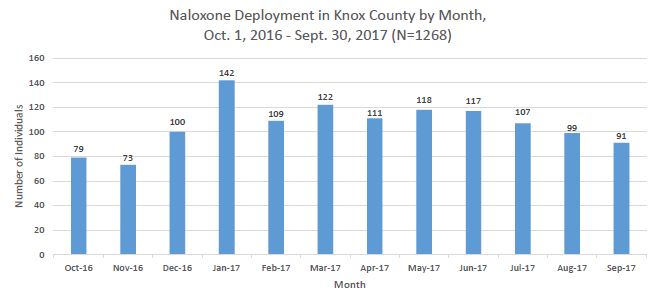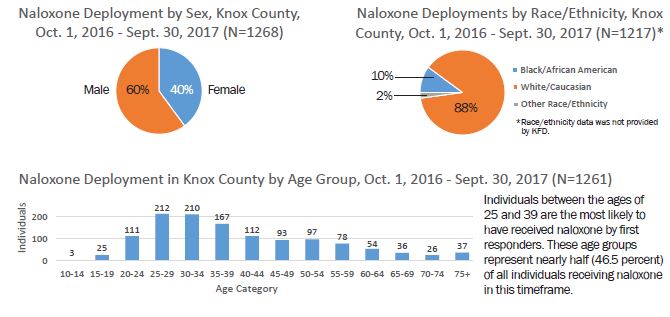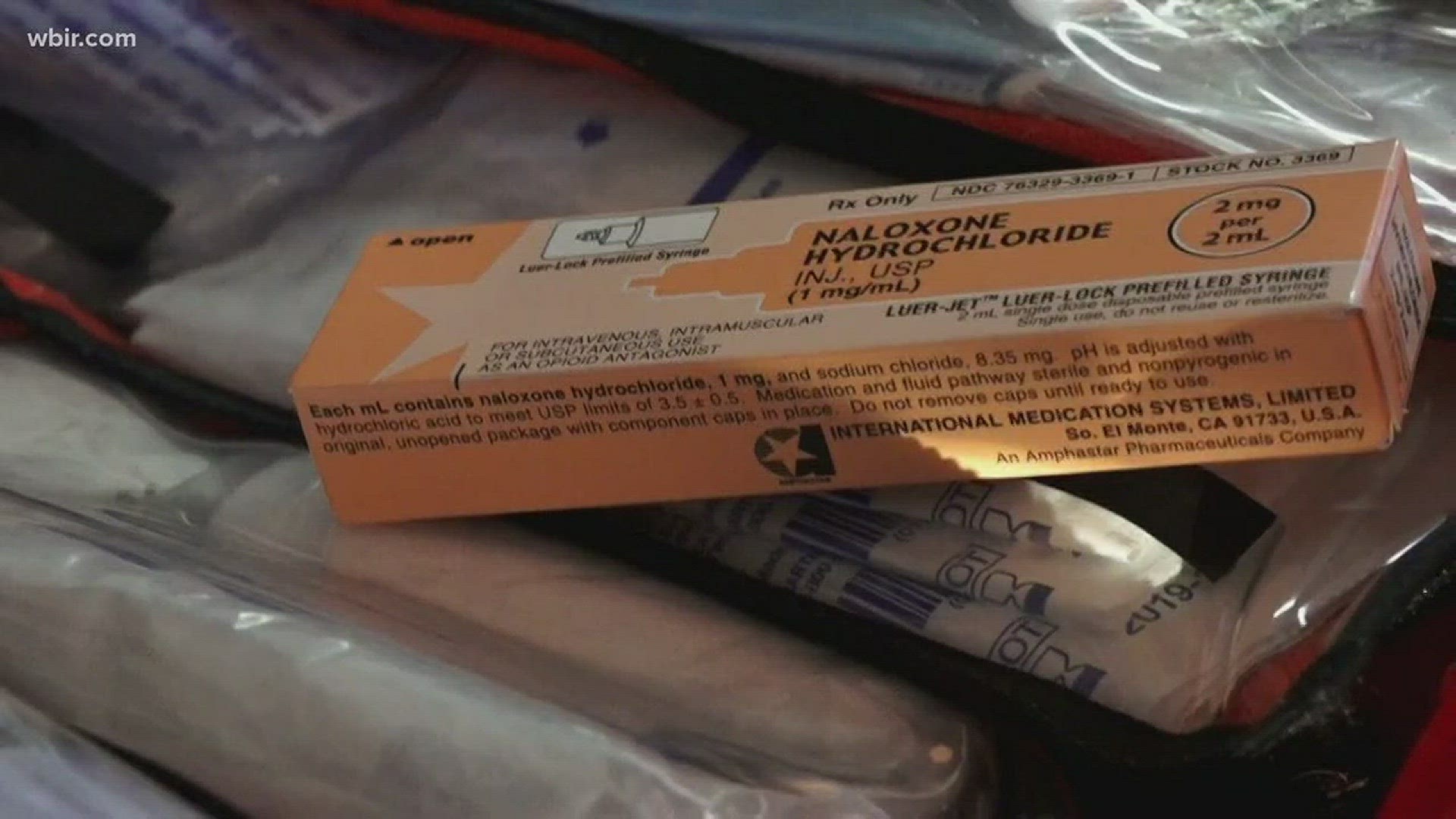The Metro Drug Coalition announced Thursday that more than 1,200 people received naloxone in Knox County from October 2016 to September 2017.
Naloxone, also known commercially as Narcan, is administered by first responders when a person is suspected of overdosing on opioids.
In response to increased opioid use, the MDC created a group that works to rescue victims and get them to follow-up care. The group, Naloxone Community Collaborative, met for the first time in September 2016.
The group gathered information to study Knox County's naloxone deployment, demographics and dosage.
Several agencies participated in the meetings but the data included in the MDC report came from AMR Rural/Metro EMS and Fire, KFD and KPD first responders who were administering naloxone.
KPD carries and administers a standard 2.0 mg dose of naloxone (nasal spray formulation) to those suspected of overdosing. When someone needs more, first responders adjust.
More than 100 people needed more than 2.0 mg.

The report found that from Oct. 2016 to Jan. 2017, the number of individuals receiving naloxone nearly doubled.
On average, three or more individuals received naloxone every day and white males ages 25 to 39 were administered the most naloxone. Only 10 percent of individuals that received naloxone were black, while 2 percent were of other races.

The report states naloxone was most frequently deployed in the 37920, 37917, 37921 and 37918 ZIP codes. It found that on 11 occasions, more than one person required naloxone at the same location.
To read the full report, click here.
Agencies that participated in these meetings include American Medical Response (AMR) Rural/Metro EMS and Fire, Cherokee Health Systems, the Knox County Health Department, Knox County Schools, the Knox County Sheriff’s Office, the Knoxville Police Department (KPD), the
Knoxville Fire Department (KFD), Cornerstone of Recovery, Appalachia HIDTA, the Knox County District Attorney’s Office and MDC.
The Knox County Nalxone Community Collaborative said its next steps are to direct people to prevention resources and work with the Knox County Regional Forensic Center to determine the outcomes of patients receiving naloxone by first responders.
The group hopes to co-prescribe naloxone when writing narcotics prescriptions.

